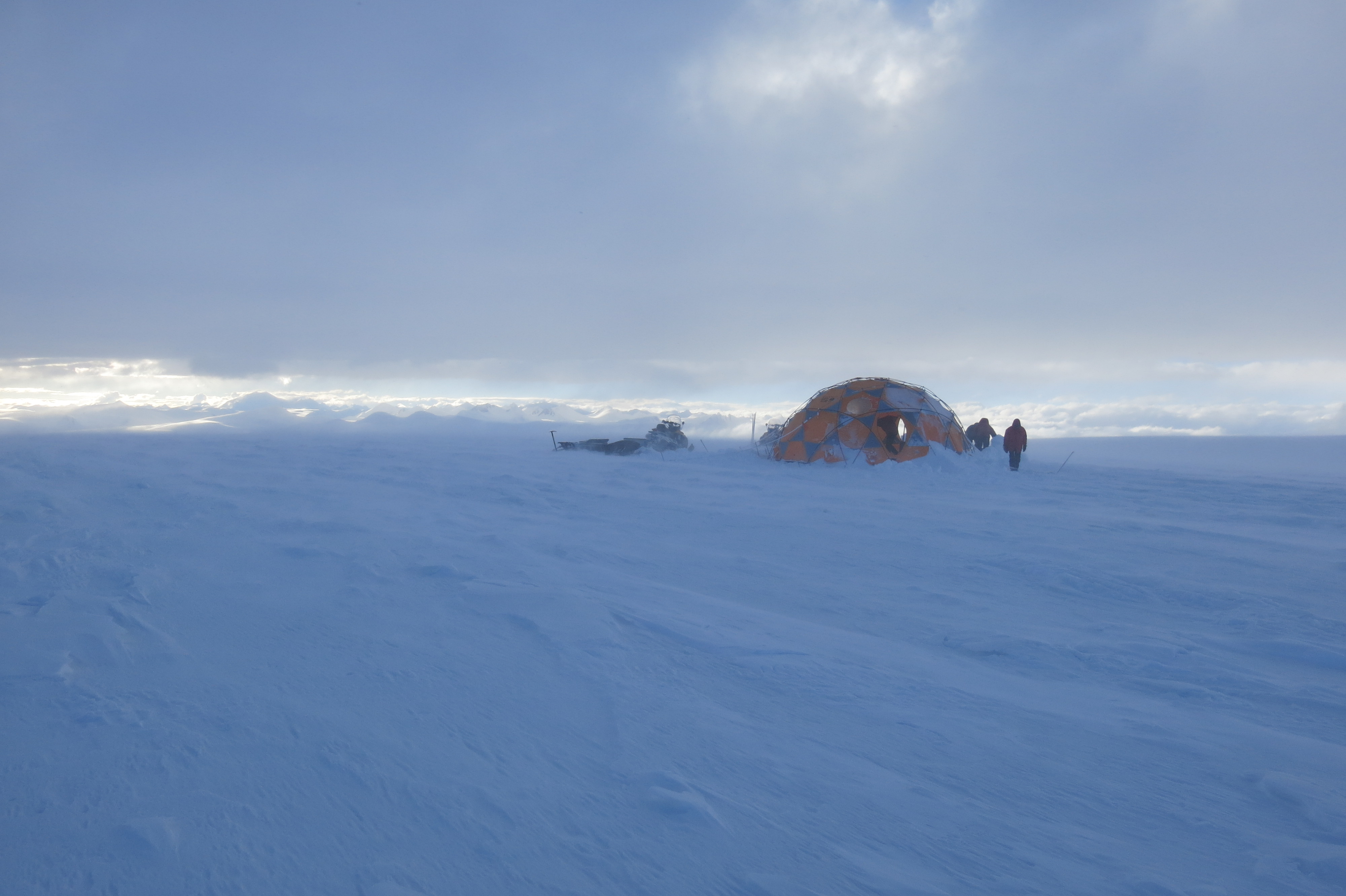Microbes, Bacteria, Viruses
Deaths From Antibiotic-Resistant Infections Could Reach 39 Million by 2050, Study Suggests
A new paper analyzes three decades of fatalities around the world and predicts how "superbugs" will affect human health in the future
Inside the Effort to Save Earth's Biocrusts
Think twice before stepping on that crunchy top layer of soil. It may be a vital ecosystem that you can help protect
Experts Discover 1,700 Ancient Viruses in a Tibetan Glacier
Studying how the viruses, which do not infect humans, adapted to previous major temperature shifts could hold clues to how modern viruses will react to the current climate change
Inside the Hidden Kingdom of Viruses in Your Gut
Human innards are teeming with viruses that infect bacteria. Here's what scientists are learning about them
WHO Declares Mpox Global Health Emergency. Here's What to Know
A new virus strain has been spreading primarily the Democratic Republic of the Congo, as well as nearby countries that had previously not reported mpox cases
Scientists Drill Deeper Into Earth's Mantle Than Ever Before, Probing for the Origin of Life on Earth
The record-setting rock samples will provide insight into the chemical processes that may have kick-started life on our planet
Your Microwave Is Teeming With Bacteria, Study Suggests
Researchers found thriving communities of microbes in microwave ovens used in home kitchens, shared spaces and laboratories
When Vultures Nearly Disappeared in India, Half a Million People Died, Too, Study Finds
By being nature's clean-up crew, the often maligned birds help prevent the spread of diseases, according to a new study
How Will Climate Change Hurt Lesser Flamingos?
Their food supply in East African lakes could collapse as rains increase
Paris Mayor Takes a Dip in the Seine Ahead of the Summer Olympics
The city spent $1.5 billion to improve water quality in the river, where several Olympic events are scheduled to take place
Gut Microbes Could Help Diagnose Autism, Study Suggests
While more research is needed, scientists detected specific differences between the gut microbiomes of children with and without autism
Meet the Forgotten Woman Who Revolutionized Microbiology With a Simple Kitchen Staple
Fanny Angelina Hesse introduced agar to the life sciences in 1881. A trove of unpublished family papers sheds new light on her many accomplishments
Man Infected With H5N2 Bird Flu in Mexico Dies. Here's the Latest on the Virus
The strain is not the same one that has infected U.S. cows and three dairy farm workers, and officials say the risk to the general public remains low
Did Body Lice Spread Bubonic Plague? Research Suggests the Parasites Are Better Vectors Than Thought
These blood-sucking insects are capable of transmitting the bacteria that caused the Black Death, according to a laboratory study
This Rare Condition Makes Some People Get Drunk, Even When They Haven't Touched a Drop of Alcohol
A man in Belgium was acquitted of drunk driving charges this week, after doctors showed he has auto-brewery syndrome, which makes his body produce alcohol
The Dirty Secret About How Our Hands Spread Disease
The human hand is an incredible tool—and a deadly threat
These French Cheeses Are at Risk of Extinction
A lack of microbial diversity could eventually spell the end of cheeses like Camembert
How a Microbe From Yellowstone's Hot Springs Could Help Feed the World
A Chicago startup has turned a fungus found by NASA into a protein-packed food
Newly Discovered Papers From President McKinley's Assassination Are for Sale
The archive belonged to Herman Matzinger, who performed the autopsy on the 25th president and conducted a bacteriological analysis to rule out the possibility of poison-tipped bullets
Plagues That Ravaged the Roman Empire Were Linked to Periods of Cold Weather
The changing climate may have had ripple effects that made people more susceptible to disease, new research suggests
Page 1 of 18
:focal(1061x707:1062x708)/https://tf-cmsv2-smithsonianmag-media.s3.amazonaws.com/filer_public/8b/7f/8b7f8ad3-a9a5-4997-aa15-1d65c58bc450/gettyimages-1498980269.jpg)
:focal(800x602:801x603)/https://tf-cmsv2-smithsonianmag-media.s3.amazonaws.com/filer_public/e1/9a/e19a6fca-5146-432b-b1df-c76d74370ffc/cryptobiotic_soil_crust_in_natural_bridges_national_monument_near_sipapu_web.jpg)

:focal(800x602:801x603)/https://tf-cmsv2-smithsonianmag-media.s3.amazonaws.com/filer_public/46/02/46026cf0-fbc2-4552-aa5c-fb19a8430429/gettyimages-1333712258_web.jpg)
:focal(2550x2380:2551x2381)/https://tf-cmsv2-smithsonianmag-media.s3.amazonaws.com/filer_public/e6/e6/e6e66bde-35b4-4f98-b543-22e287229423/gettyimages-2163384921.jpg)
:focal(675x450:676x451)/https://tf-cmsv2-smithsonianmag-media.s3.amazonaws.com/filer_public/e3/cc/e3cc2297-470d-4623-96c3-f29359aa5fc6/sample_of_rock_earth_under_microscope.webp)
:focal(640x427:641x428)/https://tf-cmsv2-smithsonianmag-media.s3.amazonaws.com/filer_public/e7/f2/e7f24549-f508-4363-aab0-6eb2aa8a96c7/kitchen-7706307_1280.jpg)
:focal(3000x2000:3001x2001)/https://tf-cmsv2-smithsonianmag-media.s3.amazonaws.com/filer_public/f1/9d/f19dbd8f-ad20-496f-9665-07852d3bf051/gettyimages-1241170086.jpg)
:focal(672x506:673x507)/https://tf-cmsv2-smithsonianmag-media.s3.amazonaws.com/filer_public/a1/b8/a1b86622-2066-48a7-93a8-35b0220f4bce/davidharper1_web.jpg)
:focal(2500x1667:2501x1668)/https://tf-cmsv2-smithsonianmag-media.s3.amazonaws.com/filer_public/3a/9e/3a9e7421-9eb4-450a-af90-ca9080cd34f4/gettyimages-2161798185.jpg)
:focal(2736x1824:2737x1825)/https://tf-cmsv2-smithsonianmag-media.s3.amazonaws.com/filer_public/7c/26/7c269289-e6e1-4c75-b388-1141615f94af/gettyimages-1895741978.jpg)
:focal(700x527:701x528)/https://tf-cmsv2-smithsonianmag-media.s3.amazonaws.com/filer_public/eb/e4/ebe4e883-241d-40cc-b92b-3a96ce2fb152/hesse.jpg)
:focal(2404x1614:2405x1615)/https://tf-cmsv2-smithsonianmag-media.s3.amazonaws.com/filer_public/91/5e/915ee875-4026-4c7d-8dd9-ccf6252cd6a4/gettyimages-2155724410.jpg)
:focal(1024x702:1025x703)/https://tf-cmsv2-smithsonianmag-media.s3.amazonaws.com/filer_public/01/05/0105fcbd-0632-4004-8498-929d3bb3e682/2048px-the_plague_of_florence_1348_a_scene_from_boccaccios_decam_wellcome_v0010585.jpg)
:focal(3008x2020:3009x2021)/https://tf-cmsv2-smithsonianmag-media.s3.amazonaws.com/filer_public/24/99/24992e84-9437-4491-b412-17316b86a0c0/pexels-elevate-1269043.jpg)
:focal(800x602:801x603)/https://tf-cmsv2-smithsonianmag-media.s3.amazonaws.com/filer_public/1d/d2/1dd28e99-e399-4ff7-8e00-93e8918bd6e2/gettyimages-1214692537_web.jpg)
:focal(2413x1815:2414x1816)/https://tf-cmsv2-smithsonianmag-media.s3.amazonaws.com/filer_public/69/8f/698f23a0-fb75-4814-9c39-5112830d2cfd/gettyimages-925809414.jpg)
:focal(512x344:513x345)/https://tf-cmsv2-smithsonianmag-media.s3.amazonaws.com/filer_public/02/e1/02e12b44-8350-431a-8f03-7f388c96436b/gettyimages-1431099487.jpg)
:focal(1200x800:1201x801)/https://tf-cmsv2-smithsonianmag-media.s3.amazonaws.com/filer_public/2b/93/2b939681-8237-4bc5-a961-a71f7d2b867f/mckinley_archive_2.jpeg)
:focal(3059x1544:3060x1545)/https://tf-cmsv2-smithsonianmag-media.s3.amazonaws.com/filer_public/6f/3a/6f3ac9bd-2763-4b3a-9df9-6d1e2d7fec60/gettyimages-1446094536.jpg)